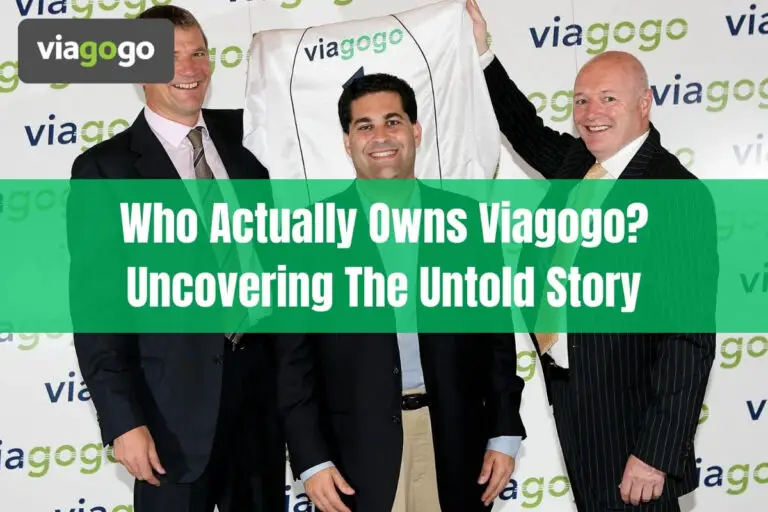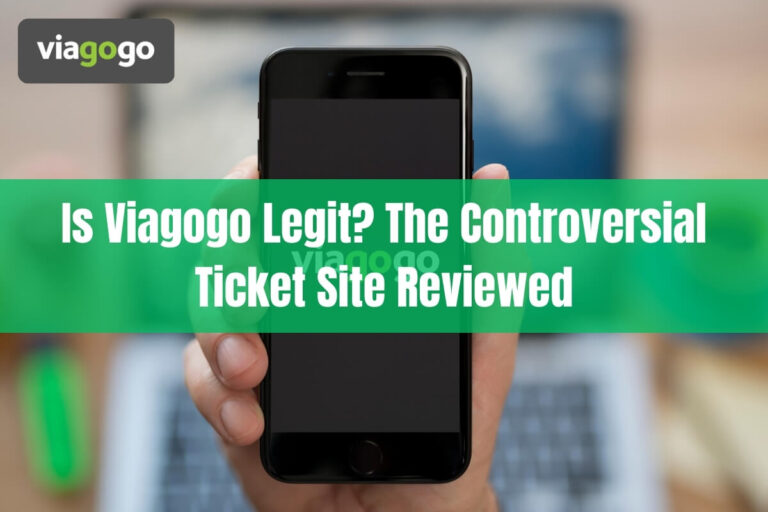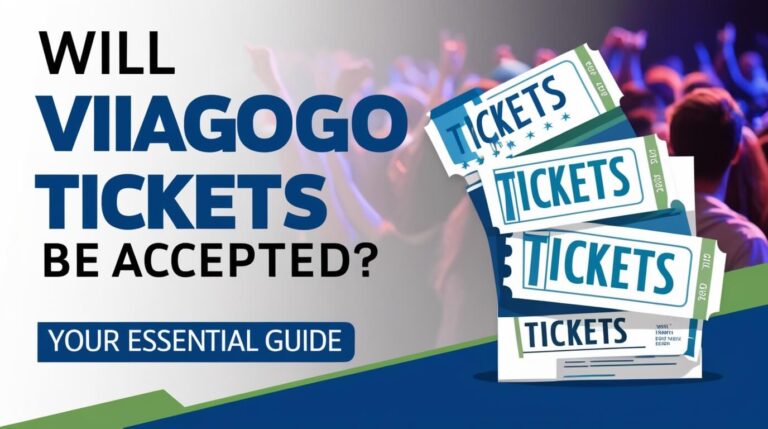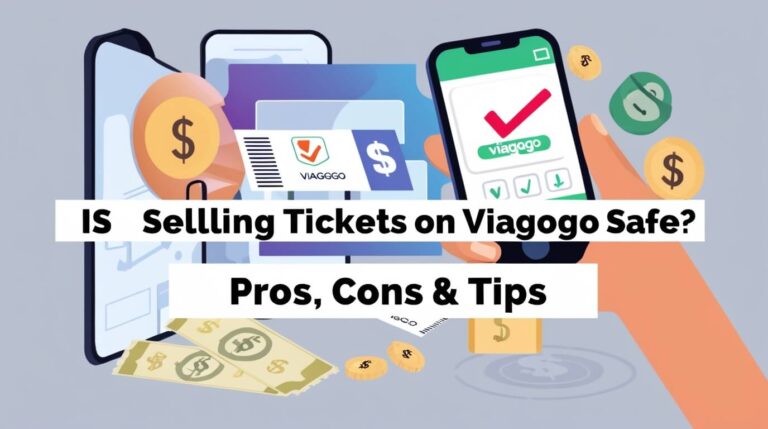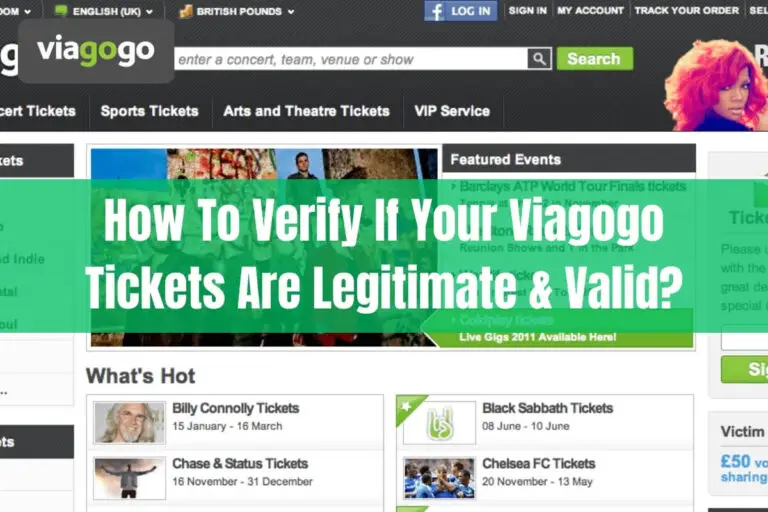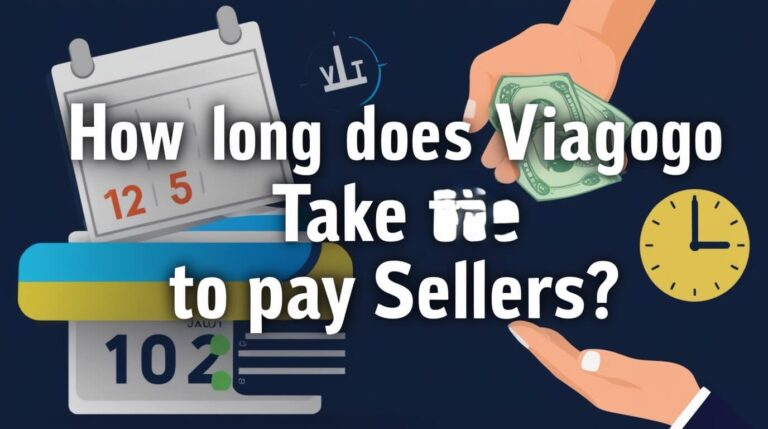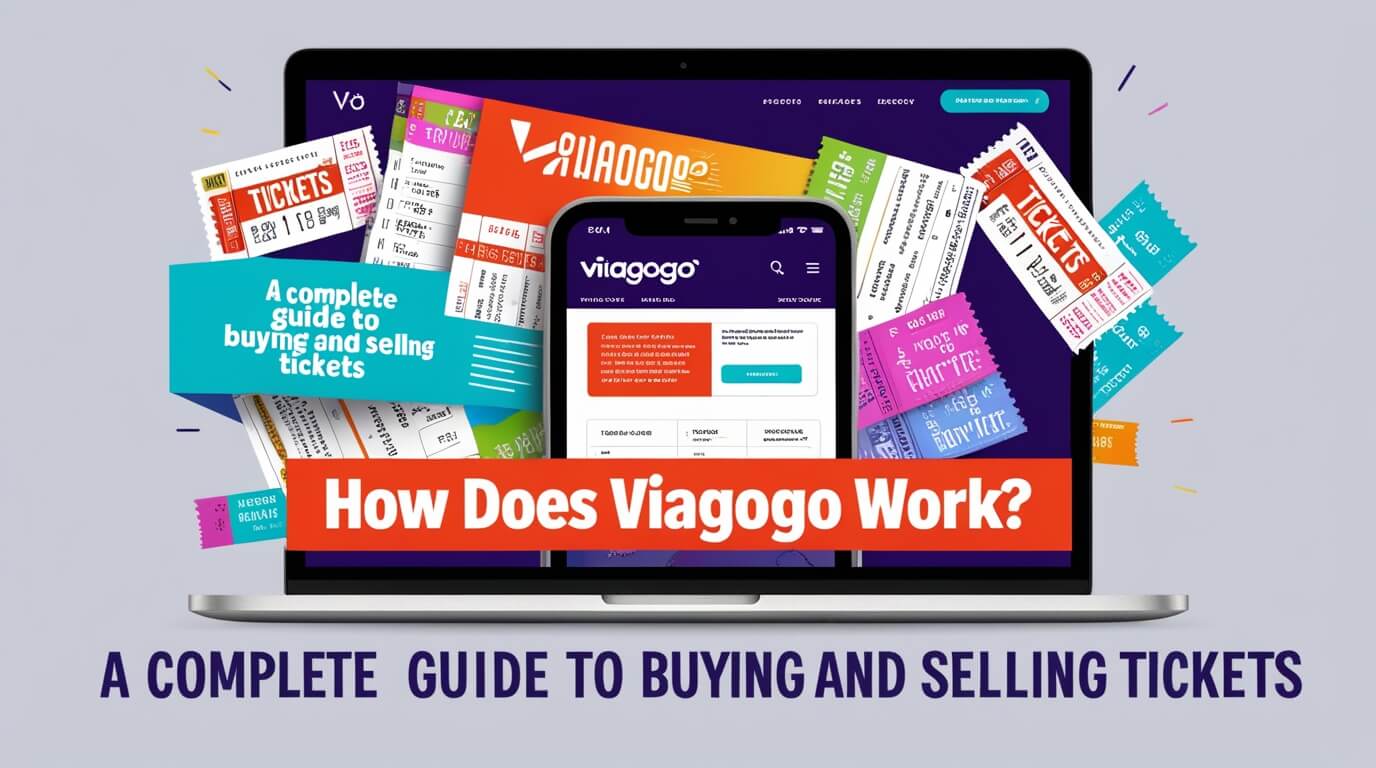
Viagogo is a big name in the world of event ticket resale. It’s a go-to for both fans and sellers. If you’re new or experienced, knowing how to ship tickets on Viagogo is key. This guide will help you understand the process for a smooth ticket delivery.
Viagogo is a legal ticket resale site in many places, like the United States. As a seller, you can make an account and list your tickets. Payments are safe through PayPal. The site also checks tickets to make sure they’re real, giving everyone confidence.
Viagogo Ticket Marketplace
Viagogo started in 2006 in London. It has become a big name in the ticket market. In 2020, it was bought by StubHub for $4 billion. Now, it serves over 60 countries, helping many people buy and sell tickets.
Platform Features and Services
Viagogo’s site has many features to make buying tickets easy. Sellers can list their tickets quickly. Buyers can find and buy tickets they want easily. Viagogo promises a 100% guarantee on every deal, making people feel safe and trusted.
Legal Compliance and Security Measures
Viagogo focuses a lot on following the law and keeping things safe. It works closely with authorities in the places it operates. This makes sure it follows local rules. Viagogo also makes sure all tickets are real, keeping the market safe.
Viagogo is a top name in the secondary ticket market today. It’s known for its secure ways of selling tickets and its commitment to following the law. As the ticket market grows, Viagogo is ready to serve more people with its secure ticket shipment and viagogo courier services.
How To Ship Tickets Viagogo
Selling tickets on Viagogo is easy. First, confirm the sale. Then, get the buyer’s shipping info from Viagogo’s support. The platform gives you a shipping label with the buyer’s details and the courier service to use.
Viagogo wants sellers to use the specified courier service for shipping. You can’t hand tickets over to buyers directly. This rule makes sure tickets are delivered safely and can be tracked.
- Confirm the ticket sale with Viagogo
- Request the buyer’s shipping details from Viagogo support
- Obtain the provided shipping label with courier information
- Package the tickets according to Viagogo’s guidelines
- Hand over the packaged tickets to the designated courier service
Following these steps, sellers can ship viagogo tickets safely. This ensures a good experience for buyers getting their ticket delivery internationally.
Setting Up Your Viagogo Seller Account
To sell tickets on Viagogo, you need to create a seller account. You’ll set up your payment method, check your account details, and list your tickets. These steps help you manage viagogo ticket handling and ticket shipment instructions well.
Payment Method Configuration
You must add a payment method to get paid by Viagogo buyers. Domestic sellers can use a debit or credit card. International sellers might need a PayPal account linked to a bank account. This makes sure Viagogo can safely send you money after a sale.
Account Verification Requirements
Before listing tickets, you must verify your account. You’ll give personal and financial info like your name, address, and bank details. Viagogo might ask you to confirm bank transactions to check your identity and financial info.
Listing Your Tickets
- After verifying your account, you can start listing tickets to sell on Viagogo.
- You’ll upload ticket details, like event info, seat numbers, and your selling price.
- Make sure your listings are accurate and follow Viagogo’s rules for a good viagogo ticket handling experience.
Following these steps, you can set up your Viagogo seller account. Then, you can offer your tickets to many potential buyers. You’ll follow the platform’s ticket shipment instructions and rules.
Tracking Your Ticket Sales on Viagogo
As a Viagogo seller, you can easily monitor your ticket sales in the “My Sales” section. This dashboard gives you insights into your orders’ status. It helps you fulfill orders on time and keep your selling experience positive.
Keep an eye on the “Get Paid” state to see which orders are complete. Also, watch the “Under Review” state for any issues that need your attention.
The “Cancelled” state shows how often orders are cancelled. This helps you find and fix any recurring problems. By checking the “Processing Transfer” and “UploadTicketsLinks” states, you can see how your ticket transfers are going. This helps you spot any delays.
The “Complete” state shows how many sales you’ve finished successfully. It gives you a clear view of your performance. This helps you improve your strategies for shipping tickets.
Regularly checking the “My Sales” section helps you manage your Viagogo ticket sales well. It ensures a smooth experience for both you and your buyers.
Locating Buyer Shipping Information
As a Viagogo seller, getting the buyer’s shipping details is key. You need to reach out to Viagogo’s support team. Go to your Viagogo seller account, find the “Profile” section, and click on “Help Center.”
Then, pick “Company Details” and choose “Contact Us.”
Accessing the Shipping Label
After contacting Viagogo support, they’ll give you the buyer’s address and a shipping label. This label has the recipient’s info and tracking details. Viagogo support usually emails this to you, so check your inbox for it.
Communication with Support Team
- Contact Viagogo support through the app or website by navigating to your “Profile” and then the “Help Center.”
- Select “Company Details” and choose the “Contact Us” option to reach out to the support team.
- Provide the necessary details about the ticket sale and request the buyer’s shipping information.
- Viagogo support will respond with the shipping label and the buyer’s address, which you can then use to package and ship the tickets.
Always double-check the shipping address with the buyer. This ensures the delivery details are correct. It helps avoid any problems during the viagogo shipping process and makes the ticket delivery viagogo smooth for everyone.
Proper Ticket Packaging Guidelines
When shipping tickets from Viagogo, proper packaging is key. As a seller, you shouldn’t pack the tickets at home. Instead, take them to the BlueDart office. There, the courier will package them following their standards.
Viagogo gives sellers a shipping label to print and attach. This label has all the info the courier needs to track the package. Following these steps helps keep tickets safe and makes buying easy for customers.
Key Packaging Considerations:
- Bring unpacked tickets to the courier office, do not pack them at home.
- The courier service will pack the tickets according to their standards.
- Print and attach the shipping label provided by Viagogo to the package.
Following Viagogo’s packaging rules and using the courier’s expertise, you ensure a secure ticket shipment. This makes the viagogo ticket handling process better for buyers. It builds trust in the marketplace, making it a positive place for everyone.
Shipping Process Through BlueDart Express
Selling tickets on Viagogo means you need a smooth shipping process. As a seller, you must go to your nearest BlueDart office to send the tickets. There, you’ll show the printed shipping label from Viagogo and your tickets.
Documentation Requirements
When you go to BlueDart, have these documents ready:
- Printed shipping label from Viagogo
- Unpackaged tickets ready for shipping
Pay for shipping at the BlueDart office. You’ll get a receipt and a tracking number. This number is important to enter in the Viagogo app. It lets you update the shipment status and keep your buyer informed.
Tracking Number Management
After shipping at BlueDart, log the tracking number in the Viagogo app. This helps you track the delivery and update your buyer. Keeping clear communication is important for a good experience.
Following these shipping steps and using BlueDart, you can deliver tickets on time. This helps you succeed as a Viagogo seller.
Shipping Cost Reimbursement Process
As a Viagogo seller, you might pay for shipping at the courier office first. But, you can get your money back by following a simple step. Keep your shipping receipt as proof of your costs. Then, reach out to Viagogo’s support team and ask for a refund. Attach your receipt to the request.
Viagogo will check your request and refund your shipping costs. This way, you won’t lose money when you send tickets internationally.
Viagogo has rules for delivering tickets. They only accept deliveries between 9am and 1pm. If a delivery is made outside these hours, like Royal Mail’s 8:48 am attempt, Viagogo might not accept it.
To avoid problems, follow Viagogo’s delivery instructions. For example, they ask you to send tickets via Royal Mail Special Delivery.
If Viagogo can’t fulfill an order because you didn’t deliver the tickets, you might have to pay for replacement tickets. It’s important to keep in touch with Viagogo’s support team and follow their rules. This helps avoid extra costs or issues.
Payment and Payout Structure
When selling tickets on Viagogo, it’s important to know about payment and payouts. Viagogo waits 7 days after an event to send money to sellers. This wait helps make sure the tickets are real before sending the money.
The platform takes its fees from the ticket price. Sellers get their money through PayPal, linked to their Viagogo account. International sellers might face extra fees for currency changes when they get their money.
Payment Timeline
Viagogo’s payment schedule helps both buyers and sellers. Sellers get their money 7 days after the event ends. This time lets Viagogo check the tickets’ authenticity, making sure everything goes smoothly.
Fee Calculation
Viagogo charges a fee for selling tickets on its site. This fee is taken from the ticket price before the seller gets paid. The exact fee depends on the event type, ticket price, and seller’s location. Sellers should know Viagogo’s fee rules to understand how much they’ll get from their sales.
| Metrics | Values |
|---|---|
| Penalty Imposed on Viagogo | $7 million |
| Booking Fee Charged by Viagogo | 27.6% |
| Percentage of Negative Reviews | 86% |
| Percentage of Positive Reviews | 50% |
Wrapping Up
Shipping tickets through Viagogo, a global ticket marketplace, needs careful attention. Sellers must follow the platform’s rules closely. This includes shipping on time, packing correctly, and tracking accurately to avoid penalties.
It’s also key to understand Viagogo’s payment and refund rules. Knowing how fees are calculated and when you’ll get paid helps. This knowledge ensures a smooth transaction process.
Even though Viagogo has a wide range of tickets and reaches customers worldwide, there are concerns. Some issues include hidden fees, drip pricing, and hard-to-reach customer support. Being aware of these problems helps make the ticket-selling process better for everyone.

